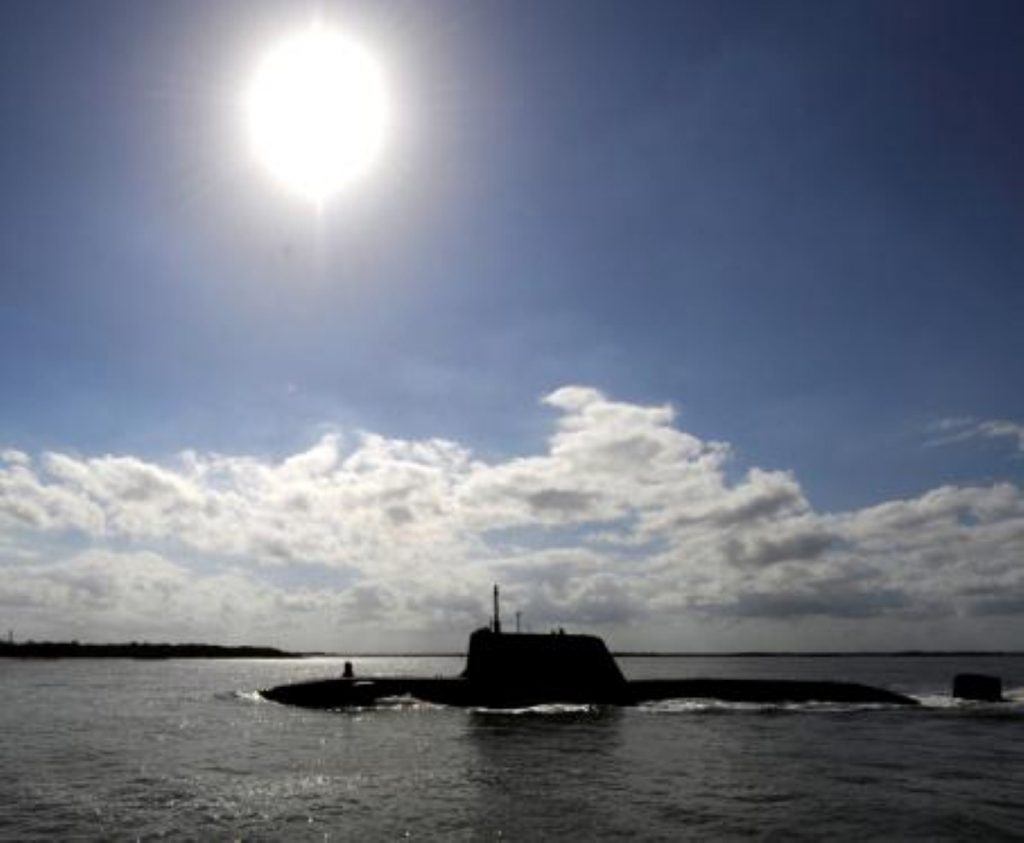Nuclear-free Britain ‘wouldn’t lose respect’
By Alex Stevenson Follow @alex__stevenson
Britain's international status would be improved if it scrapped its nuclear deterrent, according to a liberal thinktank.
A report from CentreForum out today argues that reallocating the £25-33 billion cost of replacing Trident to bolster the UK's conventional forces would actually increase the UK's influence in the world.
Many fear that ending Britain's nuclear status could see it lose its permanent place on the UN security council.


Report author Toby Fenwick argues that the UK would not be forced to give up its seat unless it was willing to do so, however. He proposes that the UK should become a 'nuclear threshold' country with the capacity to re-establish a nuclear capability should the strategic need arise.
The coalition has decided to defer the final decision on whether to go ahead with Trident's replacement until after the 2015 general election.
It is deeply divided on the issue, with Liberal Democrats preferring to see Trident's replacement scrapped altogether.
"There is no credible nuclear threat to the UK or her allies that will be deterred by a British nuclear weapons programme that is not already deterred by the United States' nuclear forces today or for the foreseeable future," the report stated.
"It is welcome that the coalition is conducting a study into the alternatives to like-for-like Trident replacement.
"However, even if the technical and operational challenges of a cruise missile-based system could be overcome and it offered considerable cash savings, it is hard to see that such a replacement would offer a sufficient security advantage to exceed the opportunity costs of reallocating these funds to the UK's under-resourced conventional forces."
Mr Fenwick suggests that the UK could convert its Vanguard-class submarines to carry conventionally-armed cruise missiles, improving the British military's conventional strike capability.
He concludes: "Investing in conventional forces will be far more effective in protecting the UK's international status than replacing Trident."









